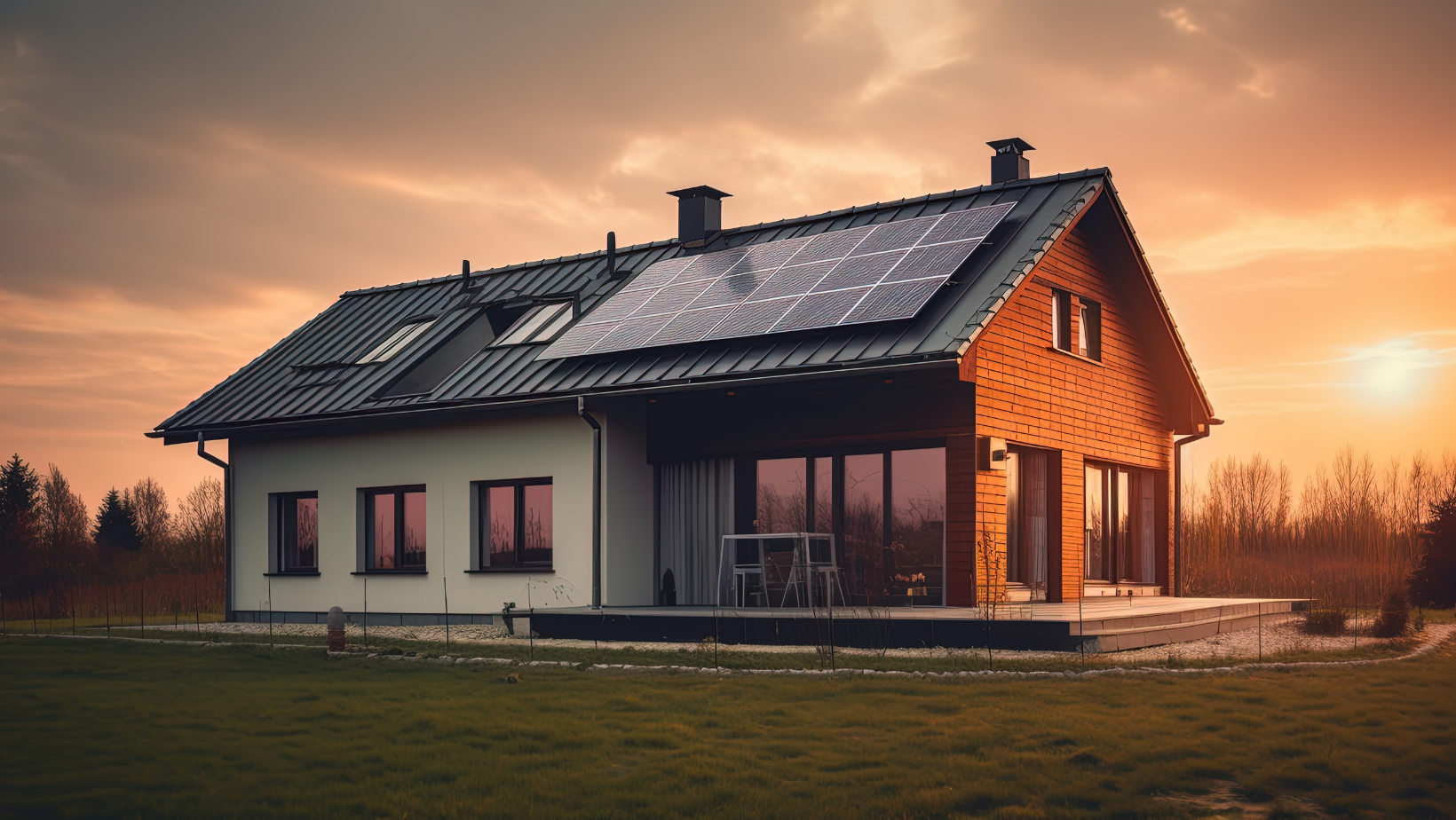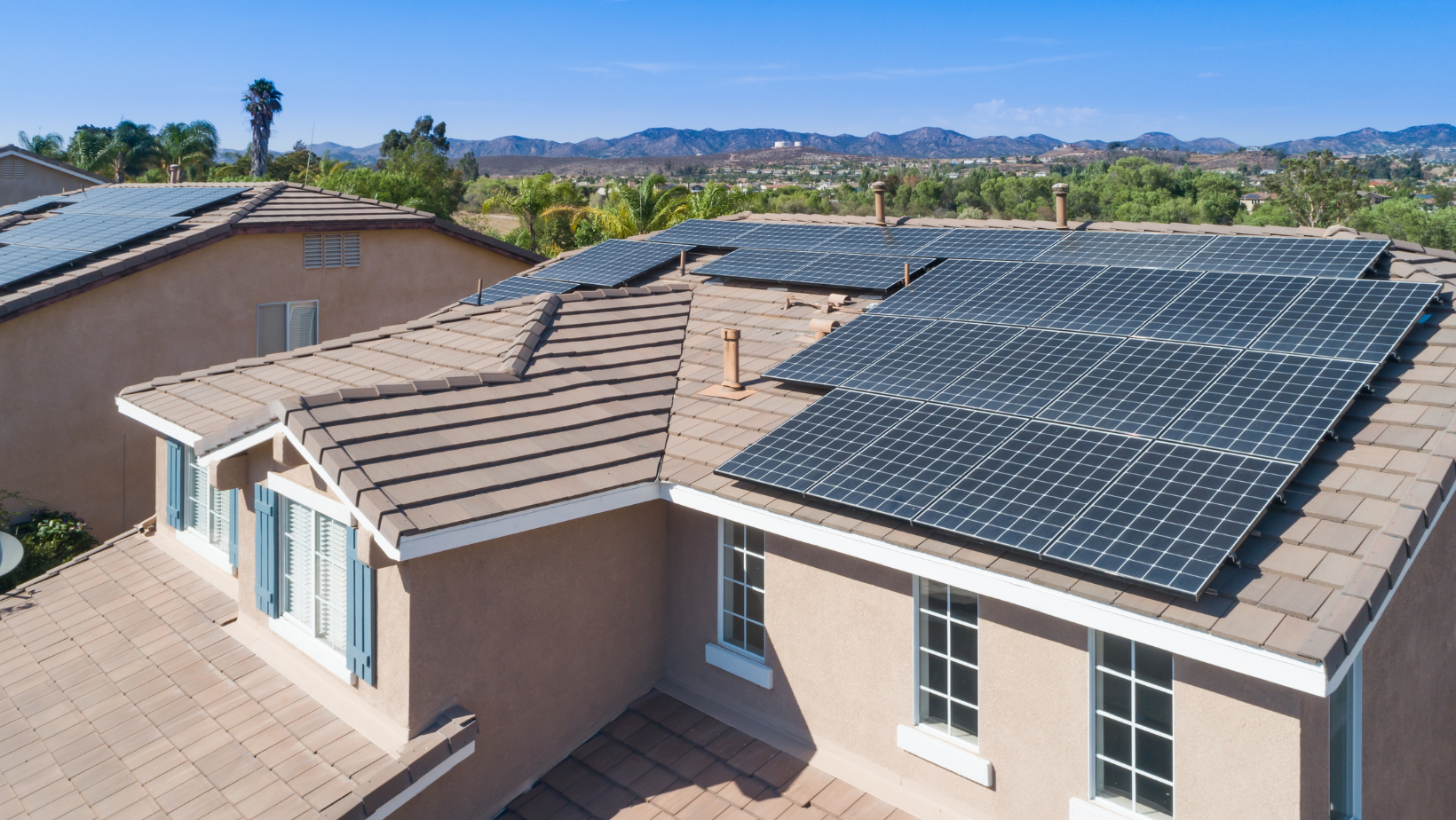Residential solar provides many advantages to homeowners, including financial benefits and environmental benefits. While many homeowners choose to install solar panels for financial reasons, there are numerous environmental benefits.
Solar panels harness energy from the sun to generate electricity, which can power your home and reduce monthly bills. The biggest environmental benefit of solar is that it is a clean, renewable source of energy.
Since sunlight is free and abundant, solar offers homeowners an accessible source of renewable energy. Solar households can reduce their carbon footprints and monthly expenses — leading people to lead sustainable lives.
What are the four environmental benefits of going solar?
1. Solar is a clean energy source for your home
Residential solar offers homeowners a way to power homes with clean energy. Clean energy is energy that comes from a renewable source that does not emit carbon dioxide or greenhouse gasses. Clean energy sources do not pollute our atmosphere, water or environment.
This means solar is not only a good investment that can lower utility bills, but it marks a commitment toward a sustainable future. A home solar energy system can provide your home with carbon-free electricity and is the perfect complement to electric vehicles and electric appliances.
2. Reduce your dependence on fossil fuels
By choosing to install solar, homeowners chose to power their homes with green energy. Without solar, homeowners are dependent on their state and utility company for electricity — which is often generated by burning fossil fuels.
Fossil fuels are a non-renewable source of energy, which deplete resources like gas, oil or coal. These resources take millions of years to produce and when used, often emit carbon dioxide and other greenhouse gasses into the atmosphere. Greenhouse gasses contribute negatively to climate change and extreme weather.
Homeowners can reduce their dependence on fossil fuels and power their homes and appliances with solar energy. Solar has a positive impact on the climate and can save you money each month.
3. Reduce your carbon footprint
Since residential solar panels are a source of clean, renewable energy — they can reduce your carbon footprint. Solar panels generate electricity without emitting carbon dioxide.
A carbon footprint is the measure of greenhouse gas emissions produced by our daily actions or consumption, such as driving, using electricity, or consuming food. Homeowners must understand their carbon footprint because it reflects their impact on the environment and climate change.
The average American has a carbon footprint of 16 tons, contributing significantly to global emissions. By reducing our carbon footprint through small, consistent actions over time, we can make a difference. Transportation, housing, and food are major contributors to our carbon footprint, but reducing it doesn’t mean sacrificing essentials.
Understanding our carbon footprint empowers us to make informed choices that benefit both the environment and our wallets. By reducing emissions, we can mitigate climate change’s devastating effects on ecosystems, freshwater availability, and extreme weather events. Plus, sustainable choices often lead to cost savings and a healthier lifestyle.
4. Sunlight is an abundant, nonrival energy source
Rooftop solar harnesses electricity from sunlight. The sun continuously produces energy that shines down to Earth in the form of solar radiation. Sunlight is one of the most abundant resources on Earth. The U.S. Department of Energy reported that 173,000 terawatts of solar energy hits the Earth continuously — which is enough to power the world 10,000 times.
Unlike burning fossil fuels, sunlight shines almost equally on every rooftop. Your solar panels harnessing energy doesn’t take away from your neighbor’s ability to use solar energy.
While the amount of sunlight can vary by geography, time of day, season and local weather — the vast majority of the U.S. receives enough sunlight to make meaningful change. This is especially true for homeowners in California and the Sun Belt, but solar can still help homeowners in the northern U.S.
The environmental advantages of a custom solar panel system
Enact connects homeowners with custom solar panel systems, designed using our award-winning software, to maximize their solar journey. When a system is created for your home, it produces the right amount of energy to meet your energy needs. A custom home solar panel system helps homeowners save money, use more renewable energy and live more sustainably.
A custom system is designed based on how much electricity your home uses each month, which means you can rely more on renewable energy and less on fossil fuels. Many systems can overproduce electricity at times, which can be stored in a storage battery or sent to the grid. When you send solar-generated electricity to the grid, you’re helping your community and in some states, you can earn net metering credits.
Are residential solar panel systems renewable?
Solar panels, whether on your roof or in utility solar farms, are a renewable source of energy. A home solar panel system can produce enough electricity to power your appliances from carbon-free sunlight.
The U.S. EPA defines renewable energy as “resources that rely on fuel sources that restore themselves over short periods of time and do not diminish.” Home solar is renewable because sunlight shines down on Earth every day and won’t disappear anytime soon. Additionally, when your panels convert solar radiation into electricity, sunlight doesn’t get diminished.
According to the University of California, Davis, the amount of sunlight the Earth receives in one hour is more than enough to power the world for one year. Homeowners can take advantage of this abundant sunlight to create clean, low-cost electricity from their rooftops.
The EPA goes further and classifies solar as a green power source. Green power is a subset of renewable energy that provides the greatest environmental benefit. Some forms of renewable energy have negative impacts on the environment. Solar panels produce carbon-free electricity, with minimal environmental impact from mining and manufacturing.
Are there other benefits of home solar?
There are numerous benefits of having a home solar panel system. Home solar offers multiple environmental benefits that improve txhe world around us, but also offers financial benefits.
Home solar reduces monthly utility expenses, which can lead to years of financial savings. As your solar panels generate more electricity, your home becomes less dependent on your utility company. Enact customers have seen their utility bills shrink by 75% or more.
Secondly, Solar shields homeowners and businesses from rising utility costs. Solar is the only way homeowners can lower their utility expenses while producing essentially free electricity. For homeowners in California, who pay increasingly high utility bills, solar offers significant savings. This is especially true for Pacific Gas and Electric customers in northern and central California.
What are the environmental benefits of a solar home battery?
Home batteries — also called storage batteries or solar batteries — store unused electricity from your system. Home batteries offers environmental benefits to homeowners and ultimately, the planet.
Because a home battery allows you to store solar energy for later usage — like at night or on a cloudy day — you can reduce your dependence on fossil fuels. This means less pollution and greenhouse gas emissions, which contribute to climate change.
Home batteries can store unused solar energy for electric vehicle charging. Electric vehicles are a sustainable alternative to burning gasoline, but increase your electricity usage which can be expensive. A solar plus storage battery system can further reduce your carbon footprint.
By promoting energy independence, home batteries empower homeowners to take control of their energy usage and contribute to a more sustainable future. Overall, investing in a home battery can play a significant role in protecting the environment and preserving natural resources for future generations.
How can Enact help me go solar?
Enact helps homeowners throughout their solar journey. We act as a trusted advisor, providing homeowners with custom solar quotes, transparency and choice — all while simplifying the solar installation process.
You can enjoy the environmental and financial benefits of having a home solar panel system with Enact. Our team of energy advisors offer free custom solar proposals during a free consultation. With just your address and the latest utility bill, Enact can create the right solar system for your home.
To get started and reduce your carbon footprint, schedule a free consultation with an Enact energy advisor. During your conversation, your advisor will present a custom solar proposal — that details your system equipment, size, projected generation and savings over time.
Enact does not surprise customers with hidden costs and junk fees, we make pricing transparent. We also give our customers choice in equipment, system details and financing options.
The bottom line
There are multiple environmental benefits of home solar energy. Homeowners can make a difference with the environmental benefits of going solar and make the switch to clean, sustainable energy. The best part — you can benefit the environment and your wallet with monthly savings.
Home solar lets consumers reduce their dependence on fossil fuels, reduce their carbon footprint and use clean energy. Together, households across the country can make sustainable decisions that make a positive impact on the environment.
Enact helps connect homeowners with custom solar panel systems that maximize the benefits of solar. Our award-winning solar software has helped thousands of homeowners get the right system.
From the initial quote to post-installation solar monitoring, Enact is here to help throughout the solar journey. To get the right system to power your home with clean energy, schedule a free consultation with an Enact energy advisor.




